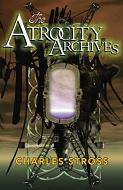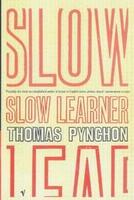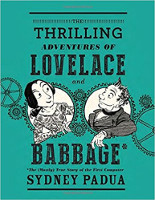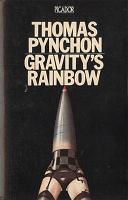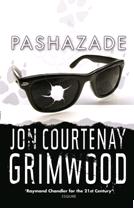 Pashazade (or, rather, the Arabesk Trilogy) is the book where (or would that be when?), as some of my friends put it, Jon Courtenay-Grimwood 'came good', and proved that indeed he was able to write enjoyable and complex SF with a unique voice. The right place to start for me, then, no?
Pashazade (or, rather, the Arabesk Trilogy) is the book where (or would that be when?), as some of my friends put it, Jon Courtenay-Grimwood 'came good', and proved that indeed he was able to write enjoyable and complex SF with a unique voice. The right place to start for me, then, no?
The book itself starts with a quote by Richard Dawkins: " However many ways there may be of being alive, it is certain that there are vastly more ways of being dead…". A questionable statement, some people would say…
Nearly all of the story, save some flash-backs, play in the free city of El Iskandryia (Isk to its inhabitants), in northern Africa. ZeeZee, or, rather, Ashraf Bey al-Mansur as he's known here, has just been sprung from prison in the US, and flown here on a gold ticket by his aunt, Lady Nafisa al-Mansur. Not that he knew himself as Ashraf, or had any inkling that he had an aunt (and a niece) in Isk, mind. And his opinion of family is rather, er, low… "the kind of people who talked about roots, and forgot those were what kept vegetables in the ground".
He's been brought here to marry Zara, the daughter of a rich industrial. Yes, new money is to marry old nobility; Nafisa get a rather large commission, and Zara's father the title 'Effendi'. But the entire plan falls through, as neither Ashraf nor Zara (who spent some time at US Universities, and picked up foreign ideas under way) are willing to play along.
And the next day Nafisa is found murdered, with Ashraf the sole heir to the crumbling family Madeira and no money at all, but official ward to Hani, his 9 year old niece. And soon he is also accused of murder, and on the run.
The story is interspersed with flashbacks, which tell ZeeZee's story, including his childhood experiences at various boarding schools, his specification (he is genetically and technologically modified), and other formative experiences. And, of course, how he came to be in jail, and then in Isk, in the first place.
The book is the first in the 'Arabesk' trilogy (the next one is called 'Effendi'), and, in accordance with this, leaves a number of dangling/open strands (mainly concerning the back story, not the current arc); which hopefully will be picked up and resolved in future instalments.
The entire story plays in an alternative history, with the Ottoman Empire still going, and German (Hohenzollern) and French (Bonaparte, recent arrivals) interest in North Africa. Isk is Islamic, and has a certain medieval feel, but interspersed with the technology of today/tomorrow (uh, Ethnic Cyperpunk anyone ? ;-), the entire setup is somewhat reminiscent of Michel Moorcock's 'The Cairene Purse'. Which is also a great story, so no issue there.
The book is slow to start – not in terms of story, or action (these are fully there from the word go), but in terms of drawing in the reader, of providing enough environment, structure, and character depth to capture readers, and to make them emphasize with the protagonists. Once it's got you, though, it will hold your attention, and you'll run off the last page at speed. Just a well that there's an extract from Effendi to catch you before you hit the wall…
I don't know how Jon wrote before, but this comes highly recommended, by some friends of mine, and myself, now.
Title: Pashazade
Subtitle: The First Arabesk
Series: Arabesk Trilogy
Series Number: 1
Author: Jon Courtenay-Grimwood
Reviewer: Markus
Reviewer URL: http://skating.thierstein.net
Publisher: Earthlight/ Simon & Schuster
Publisher URL: http://www.earthlight.co.uk
Publication Date: 2002
Review Date: 080924
ISBN: 0671773682
Price: UKP6.99
Pages: 326
Format: Paperback
Topic: Alternative History
Topic: Islamism
More Jon Courtenay-Grimwood

